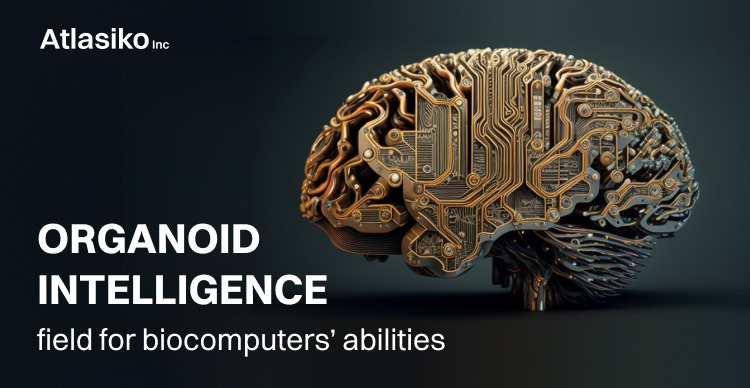Organoid intelligence is a new science field aimed to make biocomputers using lab-grown brain organoids namely “biological hardware”. So, get ready for a unique technological revolution. A team of researchers at Johns Hopkins University is currently working on developing a "biocomputer" powered by human brain cells that will change the future of computing. This incredible technology is expected to rapidly increase the capabilities of modern computing and reveal new areas of research.
According to Thomas Hartung, a professor of environmental health sciences at the Johns Hopkins Bloomberg School of Public Health and Whiting School of Engineering, "Computing and artificial intelligence have been driving the technology revolution, but they are reaching a ceiling. Biocomputing is an enormous effort of compacting computational power and increasing its efficiency to push past our current technological limits."
The team's goal for "organoid intelligence" is mentioned in a latest article published in the journal Frontiers in Science. For about two decades, small-scale organoids, lab-grown tissue (look like completely grown organs) have been utilized by scientists, with the main aim, to test kidneys, lungs, and other organs. Recently, Hartung and associates have been working with brain organoids, akin to a pen dot size with neurons and other features that are expected to sustain general functions including learning and remembering.
Hartung stated "This opens up research on how the human brain works". According to his words, this phrase implies that people can start utilizing the system, doing things they can’t do with human intelligence.
With each organoid containing about 50,000 cells, which is about the size of a fruit fly's nervous system, Hartung has intentions of creating a futuristic computer with such brain organoids. Computers that are driven by this "biological hardware" can, in the coming decade, start to reduce energy-consumption demands of supercomputing that are becoming more and more unsustainable.
While computers process calculations involving numbers and data faster than humans, brains are more intelligent in performing such intricate tasks as telling a dog from a cat. "The brain is still unmatched by modern computers," Hartung said. "Frontier, the latest supercomputer in Kentucky, is a $600 million, 6,800-square-feet installation. Only in June of last year, it exceeded for the first time the computational capacity of a single human brain - but using a million times more energy” he added.
It might take a lot of time, to be more precise, decades, before organoid intelligence could power a system as smart as a mouse. Nonetheless, by enriching production of brain organoids and training them with artificial intelligence, the professor predicts a future where biocomputers support high-ranking computing speed, processing power, data efficiency, and storage potentialities.
In addition to revolutionizing computing, organoid intelligence will also improve drug testing environment for neurodevelopmental disorders and neurodegeneration, according to the words of Lena Smirnova, a Johns Hopkins assistant professor of environmental health and engineering. Also, she added Also, she added that they planned to use and compare organoids created from both typically developed donors and those with autism to understand the specific changes in neuronal networks. So, they could comprehend the underlying mechanisms of why patients had these disability and impairments.
Numerous scientists, bioethicists, and members of the public have been embedded inside the team in order to evaluate the ethical implications of working with organoid intelligence.
In conclusion, it's clear that organoid intelligence is a game-changer in the world of computing and medical research. By funding programs to accelerate the development of this technology, we can overcome some of the world's biggest challenges and improve the quality of life for millions of people around the globe. You can be more aware of recent technologies’ emergence by reading our news like the latest one, about the Nvidia AI “supercomputer”.







